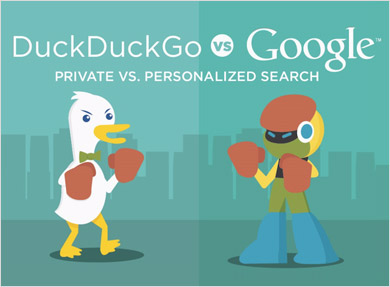I had originally intended to delve into the significance of private search results, but given the rapidly changing digital landscape of today, it is evident that this topic holds even greater importance. In the current context, there is widespread acknowledgment that government entities such as the NSA and potentially other groups are actively engaged in the collection of both private and public communications. Furthermore, leading internet giants like Google, Facebook, and Yahoo prioritize advertising and the accumulation of extensive user data. This increasing trend towards accessing information about individuals emphasizes the enduring notion that “Knowledge is Power.” In contemporary society, information holds significant value due to these prevalent trends and practices. As technology continues to advance and evolve, the need to safeguard one’s privacy and personal data becomes increasingly paramount. It is imperative for individuals to be aware of the potential implications of their online activities and the ways in which their information is accessed and utilized.
But as all of these organizations have built themselves around collecting as much information as possible about their customers, a new market segment has emerged that does just the opposite. Here are 3 search engines
Ixquick
First on our list is the strangely named “Ixquick”.
From the Ixquick About page: “Ixquick does not collect or share any personal information! … When you search with Ixquick search engine, you are searching many popular search engines simultaneously and anonymously. Combined, these engines cover more of the Internet than any one search engine alone.”
As it says about, Ixquick pulls search results from many different search engines, combs through the results and then delivers them to you. Since none of your data is ever sent to the search engines it pulls results from, and because Ixquick says it doesn’t collect any customer information, your searches are essentially anonymous. Ixquick also features a integrated phone search feature, image search and video search which is nice to have.
Also useful for privacy conscious web surfers is the built-in “proxy” feature on the search results page. Next to any search result you’ll see the word “Proxy”. Clicking this link will load that search result, but Ixquick will connect to that web server and load the page for you. That way your unique IP address is never sent to the server hosting that website, which is pretty neat.
DuckDuckGo
DuckDuckGo is a search engine focusing on anonymity and user friendliness. Much like Google, Bing, and other modern search engines, typing a question into DuckDuckGo will often give you the answer without having to visit a single search result. DuckDuckGo pulls the information from various sources it’s aware of and tries to compile it in a useful way at the top of the search results page.
So, for example, if I search for “google” on DuckDuckGo, I’m presented with a short introduction about Google, Inc. pulled from the google Wikipedia page, as well as Google’s trading symbol on the NASDAQ, where Google was founded, who founded it, it’s most recent revenue, and number of employees.
Startpage
You might notice that StartPage looks an awful lot like Ixquick. That’s because they’re owned by the same parent company. Both search engines have strong privacy guarantees and both have the proxied browsing feature I mentioned before.
Startpage’s search results are different than Ixquick’s. This is because Startpage pulls its search results directly from Google, and not a collection of search engines. Some people may like this, others may not. It’s really a matter of personal preference. Otherwise Startpage and Ixquick seem to be virtually identical, which isn’t a bad thing.
Worried about the privacy of your data? ZookaWare techs know how to keep your PC safe from attackers and are available 24/7 for remote technical support.
